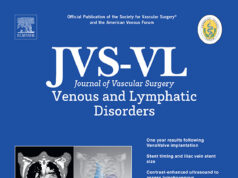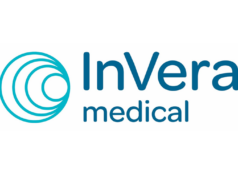 A new study based on an experimental model has shown that a high-protein or tryptophan (Trp)-rich diet increases the risk of cancer-associated venous thromboembolism (VTE). As VTE remains the second most common cause of death among cancer survivors, the researchers hope their demonstration of the prothrombotic propensity of a protein-rich diet will further encourage investigation into dietary components in the context of various cancers.
A new study based on an experimental model has shown that a high-protein or tryptophan (Trp)-rich diet increases the risk of cancer-associated venous thromboembolism (VTE). As VTE remains the second most common cause of death among cancer survivors, the researchers hope their demonstration of the prothrombotic propensity of a protein-rich diet will further encourage investigation into dietary components in the context of various cancers.
“While diet-derived metabolites are emerging contributors to VTE, the influence of specific dietary components, their underlying mechanisms, and means to mitigate cancer-associated VTE remain poorly investigated,” write Saran Lotfollahzadeh (Boston University School of Medicine, Boston, USA) and colleagues from the Boston University Chobanian and Avedisian School of Medicine.
Published in the journal Blood Advances, the authors state that cancer survivors have a four- to seven-fold higher risk of VTE which proves fatal in one in seven cancer patients, proving this “an important cardio-oncology problem worthy of investigation”.
Foregrounding their investigation into the effect of imbalanced protein- or Trp-rich diets on cancer-associated VTE, Lotfollahzadeh and colleagues’ detail that patients with cancer are often advised to increase their dietary protein intake. “This is to compensate for cancer-cachexia and chemotherapy side-effects, and in peri- and post-procedural periods following esophagectomy, colectomy, or ileostomy,” they state.
“In 3–8% of these patients, parenteral nutrition is prescribed during treatment for malnutrition or gastrointestinal dysfunction,” state Lotfollahzadeh et al. Trp is an essential amino acid derived from food, which is delivered via 0.5–1gm/100 gram amino-acid infusion to patients receiving parenteral nutrition.
“A patient receiving 1 litre of parenteral nutrition with a 10% amino acid solution receives 1000mg of Trp/1litre solution. Such patients are exposed to five to eight times more Trp than dietary recommendations,” the researcher team outlines.
Leveraging a synergistic tumour mouse model, mice received subcutaneous injections of colon adenocarcinoma cells until the development of a tumour of approximately 500mm3 without significant necrosis or haemorrhage. At this threshold, mice were fed a high-protein diet for three days followed by an inferior vena cava (IVC) ligation, and subsequent clot harvesting.
The researchers, with postdoctoral associates Saran Lotfollahzadeh and Asha Jose (Boston University School of Medicine, Boston, USA) as equal contributors, found that, in the experimental group, mice with colon found that, in the experimental group, mice with colon cancer who were fed a protein- or Trp-rich diet experienced a 40% increase in thrombosis severity compared to groups fed a normal diet. They also demonstrated that inhibiting the key enzyme associated with metabolising Trp reduced the severity of vascular injury.
Although taken from an experimental model, the research team led by Vipul Chitalia and Katya Ravid (both Boston University Chobanian and Avedisian School of Medicine, Boston, USA), believe their findings have potential implications at individual patient and population levels. They note that nutritional management is “an integral component” of cancer patients’ care and their results “raise a point of caution for higher protein administration in cancer cases with risk for cardiovascular disease.” To this end, they hope that their findings will motivate further studies of this kind in human cohorts with a variety of cancers.
The authors state that the present study was funded by the American Heart Association (grant number 857078) as part of a Strategically Focused Research Network (SFRN) initiative.












